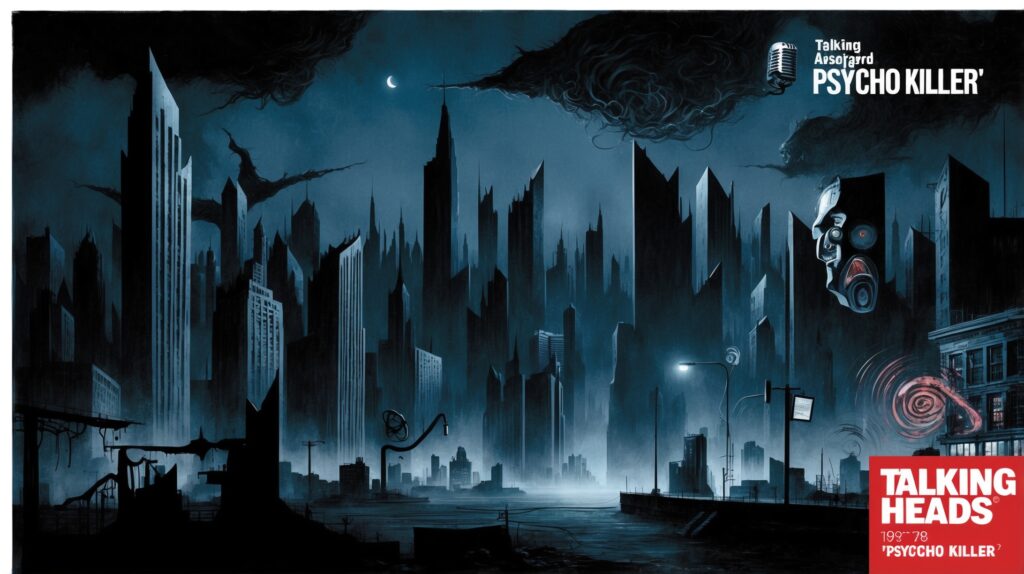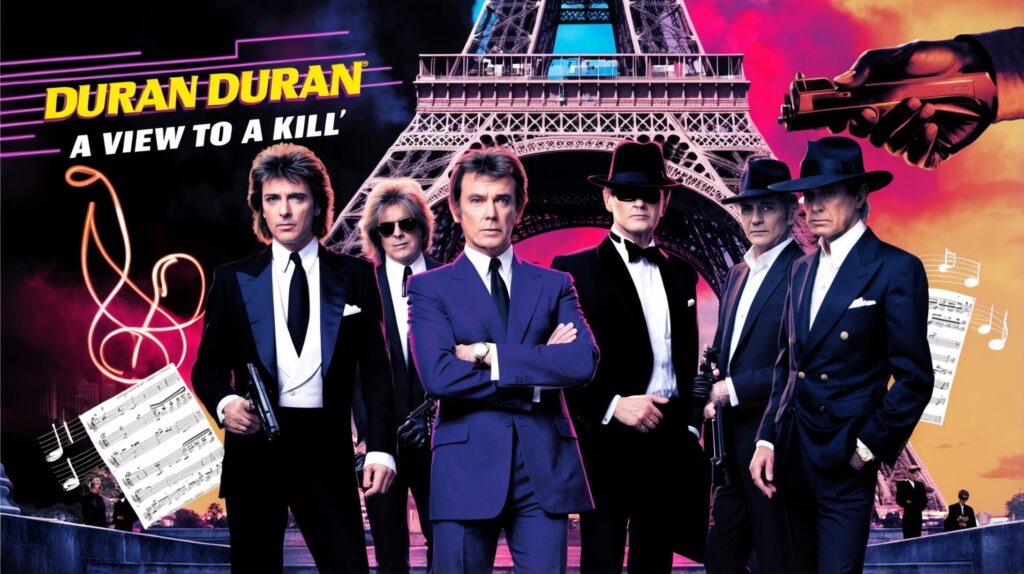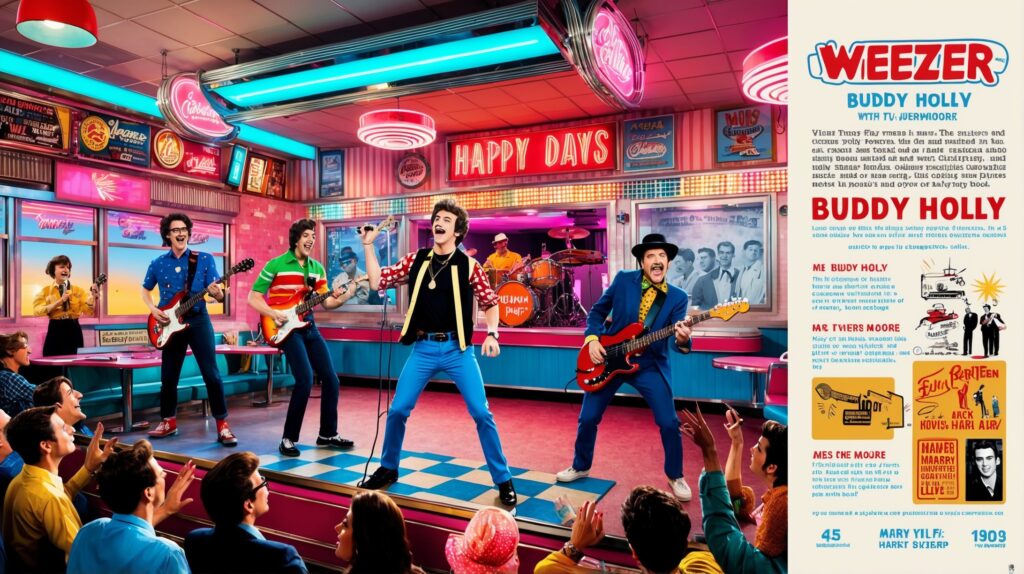The Unmistakable Quirk of Talking Heads
Discover the peculiar charm of Talking Heads, the band that crafted ‘Psycho Killer’. From their art school roots to their pioneering role in the new wave movement, explore how they redefined music with their unique style and broke new ground in the late 70s’ vibrant scene.
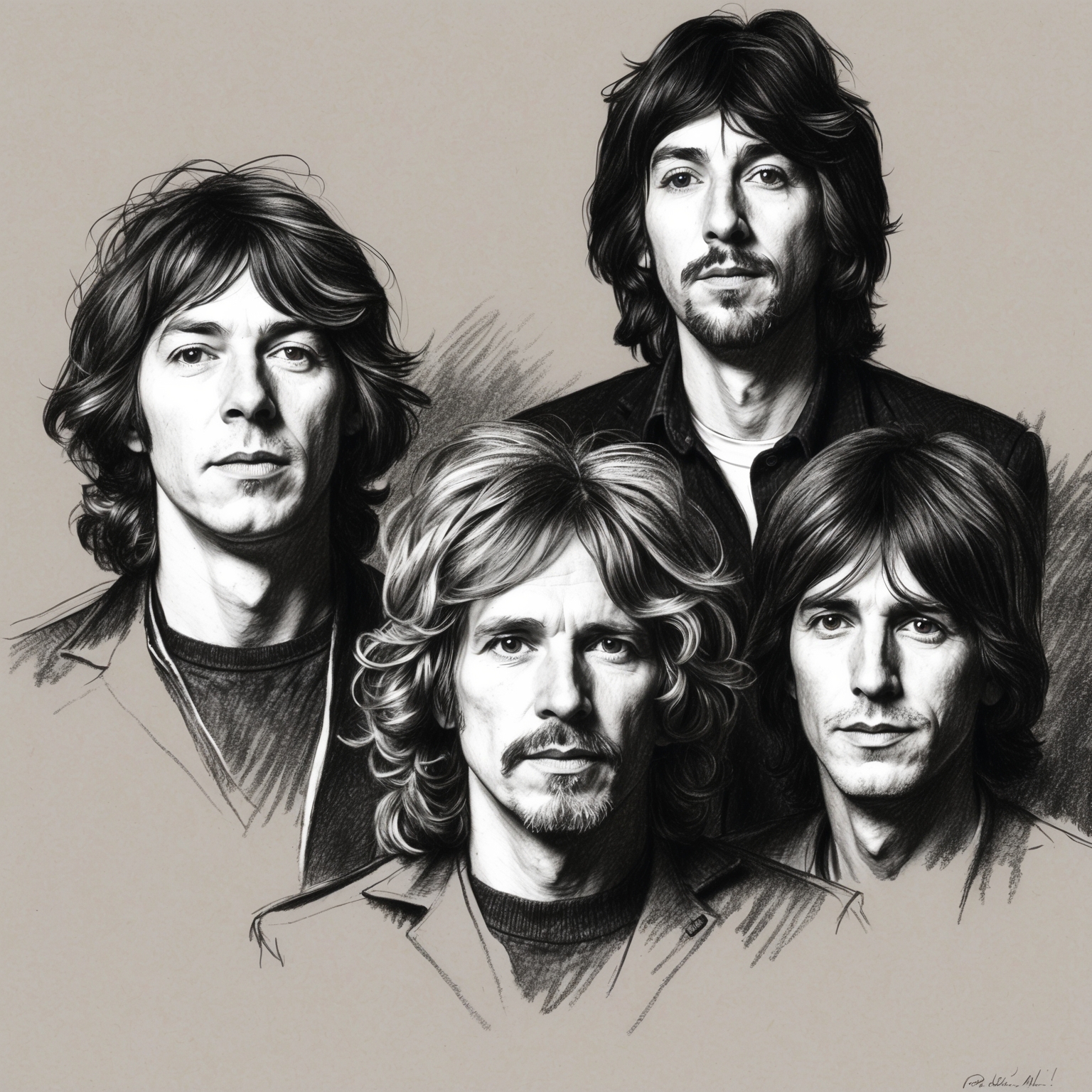
Talking Heads emerged from the vibrant New York City music scene of the mid-1970s, when punk rock was shaking the foundations of popular music. Formed in 1975 by David Byrne, Chris Frantz, and Tina Weymouth, who were later joined by Jerry Harrison, Talking Heads quickly distinguished themselves from other contemporary bands with their unique blend of punk, art rock, funk, and world music influences. Their music was characterized by a quirky yet cerebral edge, with ‘Psycho Killer’ being a prime example of their signature sound.
The song ‘Psycho Killer’ holds a significant place in Talking Heads’ career, as it was their first single and a standout track from their debut album, ‘Talking Heads: 77’, released in 1977. The era around its release saw the band making their transition from art school graduates dabbling in music to becoming icons of the new wave movement. Their art school background undoubtedly influenced their approach to music, performance, and collaboration, creating an aesthetic that was both avant-garde and accessible.
The creation of ‘Psycho Killer’ was a collaborative effort that showcased the synergy within the band. David Byrne’s eccentric vocal delivery and lyrical style, paired with the tight rhythm section of Frantz on drums and Weymouth on bass, produced a piece that resonated with audiences while maintaining an air of unpredictability. At the time of its release, the music scene was rife with experimentation, and the eclectic mixture in Talking Heads’ music found a niche audience that appreciated their innovative fusion of genres. This not only set the stage for the band’s future success but also contributed to the burgeoning new wave movement of the late 70s and early 80s.
The Creative Mind Behind ‘Psycho Killer’
Explore the creative mind of David Byrne, the mastermind behind ‘Psycho Killer,’ whose eclectic influences and innovative style have left a profound mark on modern music.

Background and Career: David Byrne, the creative force behind ‘Psycho Killer,’ is recognized as a multifaceted composer and artist. Born in Scotland and raised in Maryland, Byrne’s eclectic background and exposure to diverse cultural influences have shaped his unique musical style. Before founding Talking Heads in 1975, Byrne attended the Rhode Island School of Design and the Maryland Institute College of Art, exploring his artistic inclinations. His early career was marked by experimenting with different musical genres, which laid the foundation for his innovative approaches to composition.
Musical Style and Influences: Byrne’s musical style is a rich tapestry woven from various genres, including punk, new wave, post-punk, and world music. His compositions often reflect avant-garde influences and a distinct penchant for rhythm and non-mainstream musical structures. Byrne’s style has been significantly shaped by artists and bands from the early punk scene, as well as his interest in African and Latin American music, evident in his use of polyrhythms and unconventional harmonies.
Role in the Song’s Creation: ‘Psycho Killer’ stands as a testament to Byrne’s genius in both composition and lyrical expression. The song, co-written with band members Tina Weymouth and Chris Frantz, showcases Byrne’s ability to blend catchy melodies with a dark, introspective narrative. His compositional skills are evident in the song’s distinctive bassline and innovative structure that play a pivotal role in creating the song’s unsettling yet engaging mood.
Legacy and Influence: David Byrne’s influence extends beyond ‘Psycho Killer’ to a vast body of work that has redefined modern music. His compositions have inspired a generation of musicians, and his innovative spirit continues to resonate in the industry today. Byrne remains a crucial figure in the evolution of alternative music, with ‘Psycho Killer’ being a landmark example of his enduring impact.
Noteworthy Recognitions and Captivating Covers
Discover the enduring legacy of ‘Psycho Killer’ by Talking Heads, from captivating covers to its cultural impact in films and TV!

‘Psycho Killer’ by Talking Heads has cemented its place in music history not just because of its infectious beat and intriguing lyrics, but also due to its wide-reaching influence across various media platforms. Although it may not have clinched any major awards upon its original release in 1977, its enduring appeal and cult status have garnered widespread recognition in the subsequent decades.
While the song itself did not receive individual awards, the accompanying debut album, Talking Heads: 77, has been heralded as a critical success, often appearing in various ‘best of’ album lists. The song’s immense popularity has ensured its inclusion in numerous compilations and retrospectives celebrating the rich history of rock music from the late 20th century.
The song’s unique sound and edgy vibe have inspired artists across different genres to develop their own interpretations. Notable covers include renditions by Velvet Revolver, who brought a hard rock edge to the classic, and Cage the Elephant, which contributed their own alternative spin. Moreover, ‘Psycho Killer’ has had an enduring presence in popular culture, featuring in various movie soundtracks, such as Quentin Tarantino’s ‘True Romance’, and in TV series like Veronica Mars, solidifying its legacy as a staple of American rock music.
A Sneak Peek into the Chart Journey of ‘Psycho Killer’
Explore the chart journey and cultural impact of **’Psycho Killer’** by Talking Heads, from its initial Billboard breakthrough to its lasting legacy in the music world.
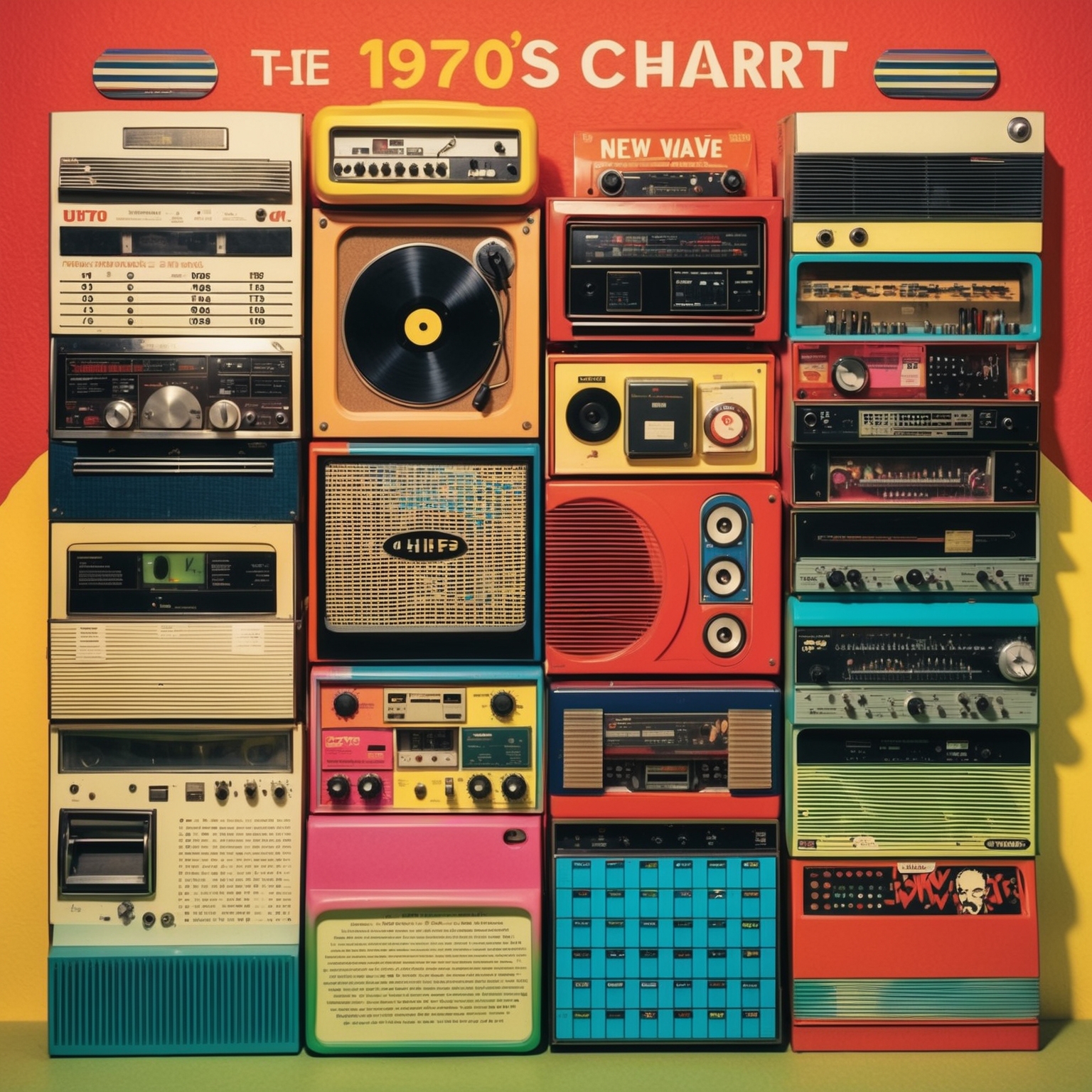
Released in December 1977, **’Psycho Killer’** by Talking Heads carved its niche in the music landscape during a vibrant era for new wave and punk rock. The single was a pivotal release from their debut album, ‘Talking Heads: 77’, and it didn’t take long for it to capture the airwaves. While the song did not climb to the very top of every chart worldwide, it managed a commendable peak position at number 92 on the US Billboard Hot 100. In a crowded field of iconic tracks from that year, breaking into the Billboard charts was no small feat, especially for a newer band making their mark in the late ’70s.
In comparison to its chart counterparts at the time, ‘Psycho Killer’ held its own despite not reaching the dizzying heights of certain blockbuster hits. The success of the track was indicative of Talking Heads’ burgeoning potential and their flair for creativity, which stood out in a world increasingly dominated by pop and disco during the late ’70s. It set the stage for future achievements and established their reputation as innovators in the new wave movement. The critical reception of ‘Psycho Killer’ was predominantly positive, lauded for its unique sound and thought-provoking lyrics, enhancing its standing in the music community.
The release strategy for **’Psycho Killer’** was heavily focused on highlighting the band’s eccentric style and distinctive sound. This approach was bolstered by frequent performances and media appearances designed to captivate audiences and cultivate a strong fan base. As Talking Heads grew to be iconic symbols of their genre, their debut hit left an indelible mark, contributing to their cultural legacy and influencing an array of artists across genres. Decades later, the song continues to thrive in digital spaces, reflected by its continued presence in streaming playlists and its application in social media challenges, making it a testament to the enduring legacy of both the track and the band.
Unconventional Visuals: The Elusive Video Strategy
Despite lacking an official music video, ‘Psycho Killer’ by Talking Heads thrives through imaginative fan videos and unforgettable live performances. These interpretations amplify the song’s haunting themes and continue to captivate audiences.
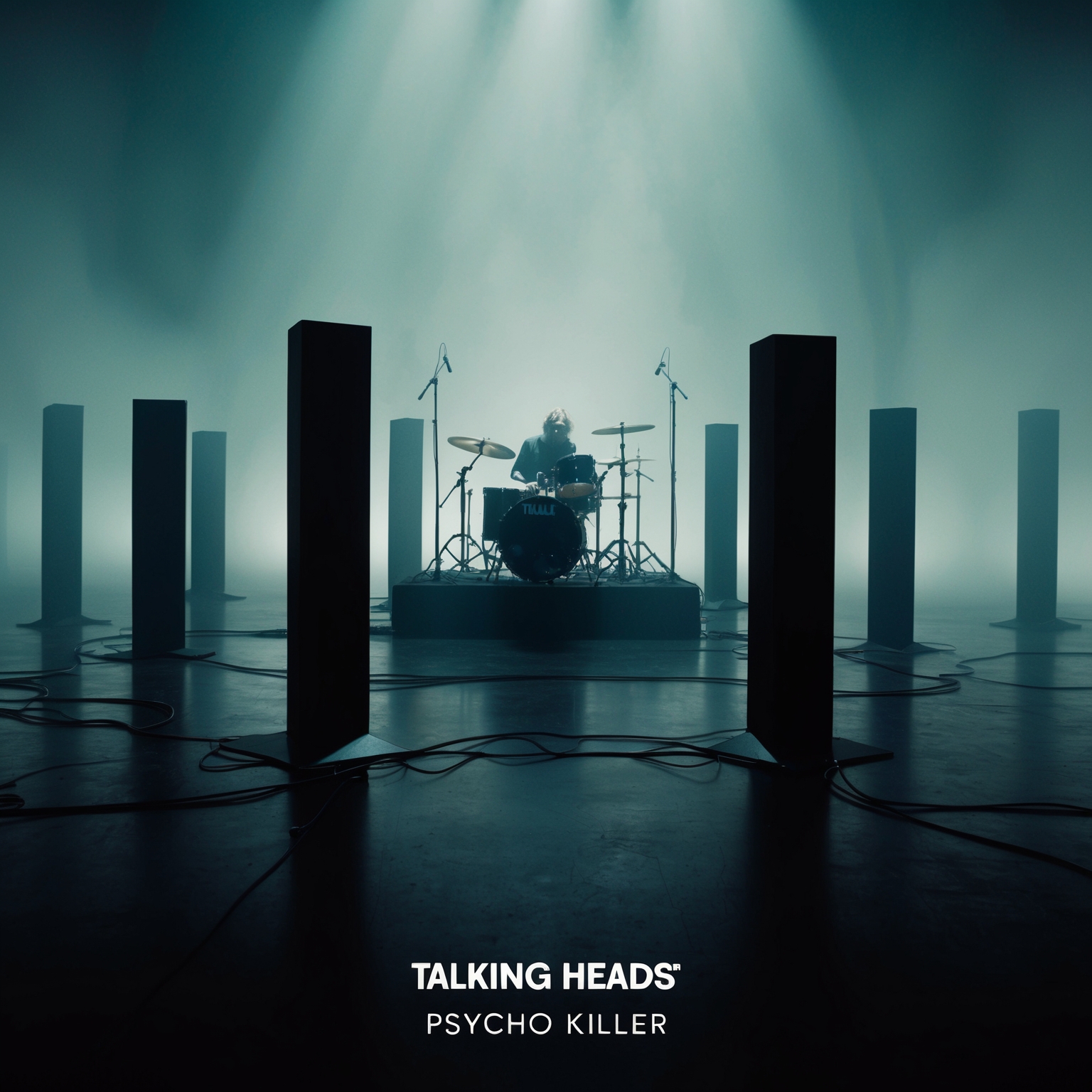
While ‘Psycho Killer’ is one of Talking Heads’ most iconic tracks, the song does not have an official music video from its initial release in 1977. This absence of an official video might seem unusual, especially given the era’s burgeoning music video culture, but it offers a chance to explore other visual interpretations that have surrounded the song over the years.
The lack of an official video hasn’t stopped fans and filmmakers from vividly imagining its visual landscape. Several unofficial and fan-created videos seek to capture the song’s eerie and thought-provoking themes, often playing with dark and surreal imagery that complements its haunting lyrics. These fan productions display a wide variety of interpretations, from minimalist animations focused on the nuances of David Byrne’s vocals to elaborate narratives that attempt to convey the psyche of the song’s titular character. Despite their unofficial status, many of these videos are lauded for their creativity and ability to resonate with the song’s steadfast following.
Aside from fan-made content, live performance recordings of ‘Psycho Killer’ have gained considerable attention. One such notable performance is Talking Heads’ 1984 concert film ‘Stop Making Sense,’ directed by Jonathan Demme. Here, the stripped-back setup features David Byrne alone with a guitar to open the show, capturing the raw energy and unique charisma that Talking Heads brought to their live shows. This iconic rendition is revered for the way it both visually and musically reflects the song’s intensity, standing out in the annals of concert film history.
Although there isn’t a traditional music video for ‘Psycho Killer,’ the song’s live renditions and fan creations have complemented its legacy in ways that an official video might not have captured. These varied visual interpretations allow the song to continually evolve, providing a dynamic and multi-dimensional approach to experiencing its darkly engaging world.
Anatomy of ‘Psycho Killer’: Dissecting the Musical Framework
Psycho Killer’ by Talking Heads is structured in the key of C major with a steady tempo, creating a unique tension between its musical simplicity and lyrical complexity. The track’s dynamic instrumentation, featuring electric guitar, bass, and drums, is enhanced by distinctive vocals, making it a standout in the band’s discography.
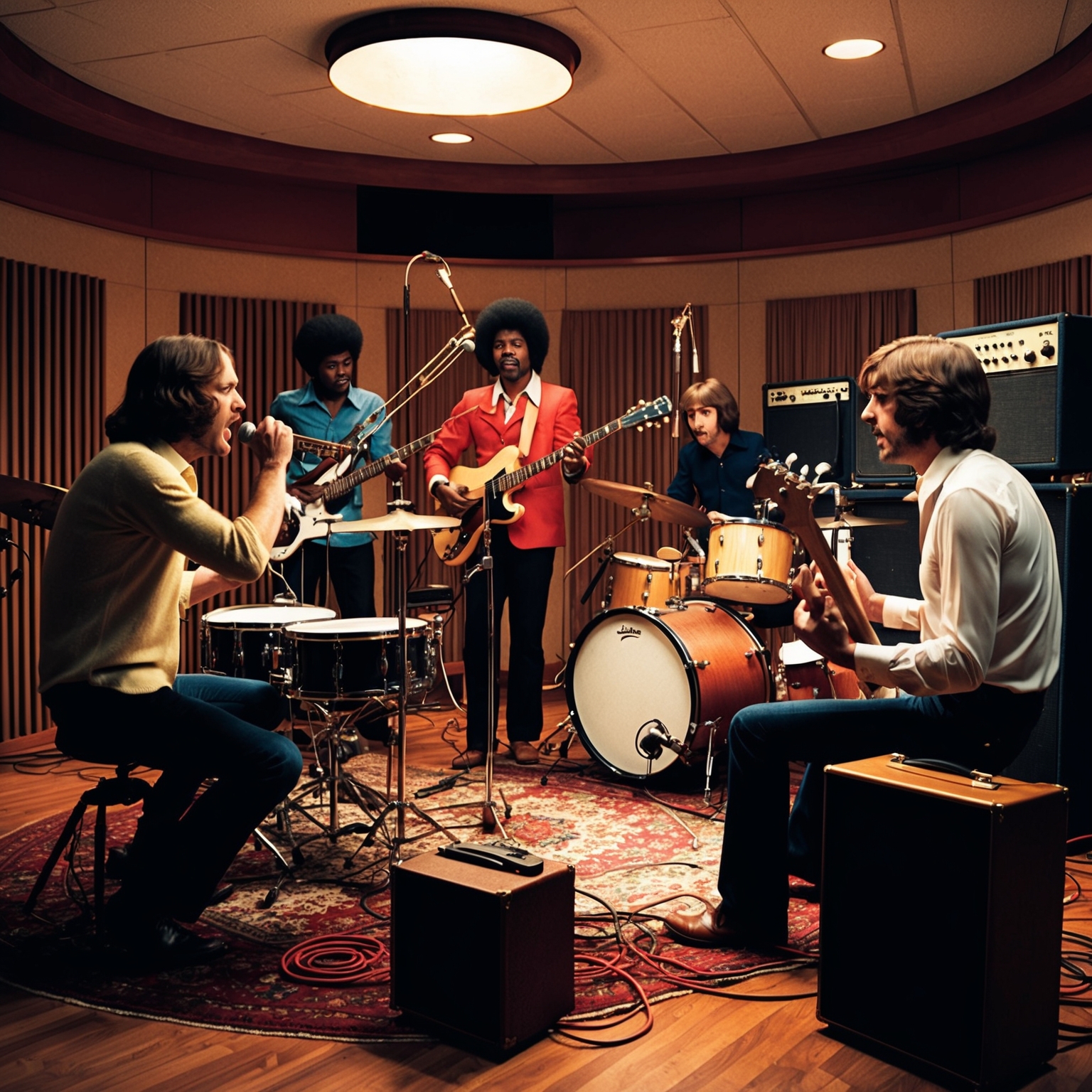
‘Psycho Killer’ by Talking Heads is a fascinating piece of music that embodies the unique and eclectic style the band is known for. The song is crafted in the key of C major, which is often used to convey a sense of straightforwardness but is here employed in a way that contrasts with the song’s dark lyrical themes. The tempo is steady and driving, set at around 124 beats per minute, giving it an urgent yet controlled pace that mirrors the tension within the lyrics.
The song’s structure consists of a traditional verse-chorus format, but with an unconventional twist. The verses build tension with their restrained vocal delivery and minimalist instrumentation, while the choruses explode with rhythmic energy and chant-like repetition. This dichotomy creates a sense of unpredictability, keeping the listener engaged throughout. The chord progression is primarily a cycling between A minor, G major, and F major, which establishes a sense of progression toward resolution that is never fully realized, adding to the underlying tension.
Instrumentally, ‘Psycho Killer’ features an intriguing blend of electric guitar riffs, a steady bass line, and tight drum patterns. Bassline is particularly emphasized and syncs with the drum beats to ground the song’s rhythm. The quirky lead guitar provides punctuation and jagged accents that enhance the song’s uneasy mood. David Byrne’s distinctive vocal delivery, alternately speaking and singing, further contributes to the track’s unique character. Notably, Jerry Harrison’s keyboard parts embellish the climactic sections, adding further layers to the sonic texture.
In the broader context of Talking Heads’ discography, ‘Psycho Killer’ stands as a seminal track from their debut album ‘Talking Heads: 77’. This song marked a significant departure from the more traditional rock sounds of the early 1970s, ushering in a new wave of art rock that the band would become renowned for. Compared to later works like ‘Once in a Lifetime’ from ‘Remain in Light’, ‘Psycho Killer’ is rawer and more stripped down, reflecting the band’s nascent exploration of experimental sounds.
The song was produced by Tony Bongiovi and lance Quinn, whose expertise helped crystallize the band’s edgy sound. It’s recorded at Sundragon Studios, a hub for innovative acts of that era. An interesting anecdote from the recording session involves David Byrne’s meticulous approach; he famously insisted on multiple takes to perfect the vocal delivery, capturing the tension and veracity that define the track.
Unearthing the Psyche: Analyzing ‘Psycho Killer’ Lyrics
Dive into a lyrical analysis of ‘Psycho Killer’ by Talking Heads, exploring themes of anxiety and madness. The song’s first-person narrative and use of literary devices convey a compelling portrait of a disturbed psyche amidst a chaotic world.
I’m tense and nervous and I can’t relax
I can’t sleep ’cause my bed’s on fire
Don’t touch me, I’m a real live wire
Psycho killer, qu’est-ce que c’est?
Fa-fa-fa-fa,
 Psycho Killer by Talking Heads is a track that delves into the unsettling exploration of a disturbed mind. Released in 1977, its lyrics are laden with themes of anxiety, paranoia, and the darker facets of the human psyche. At its core, the song feels like a narrative birthed from the chaos and uncertainty that characterized much of the late 20th century. With phrases that hint at a personal, internal struggle, the song cleverly reflects the tumultuous emotions felt by individuals during that era. The primary theme revolves around isolation and madness, resonating with listeners who find themselves navigating the complexities of a modernizing society.
Psycho Killer by Talking Heads is a track that delves into the unsettling exploration of a disturbed mind. Released in 1977, its lyrics are laden with themes of anxiety, paranoia, and the darker facets of the human psyche. At its core, the song feels like a narrative birthed from the chaos and uncertainty that characterized much of the late 20th century. With phrases that hint at a personal, internal struggle, the song cleverly reflects the tumultuous emotions felt by individuals during that era. The primary theme revolves around isolation and madness, resonating with listeners who find themselves navigating the complexities of a modernizing society.
The narrative style of Psycho Killer is both captivating and haunting, presented through a first-person perspective. This choice immerses the listener directly into the character’s frenetic mind, heightening the song’s impact. The storyteller conveys a sense of urgency and panic, evoking the anarchic charisma of urban life. The first-person narrative amplifies a sense of confusion and inner turmoil, painting a picture of societal pressure and personal chaos. By not offering a clear resolution or story conclusion, David Byrne leaves the audience with lingering questions about sanity and identity.
Literary devices are masterfully employed throughout the song. Rhythmic elements such as alliteration and repetition intensify its hypnotic quality, while metaphors and vivid imagery create a stark portrayal of mental anguish. Lines teeter between English and French, adding an exotic yet unbalanced feel, symbolic of the fragmented thoughts racing through a character’s mind. This bilingual play adds layers to the narrative, conveying dissonance and cultural intersections that might reflect an individual’s disjointed psyche.
Compared to other works by Talking Heads, Psycho Killer stands out for its raw introspection. While songs like ‘Once in a Lifetime’ explore existential themes with more of an outward social lens, Psycho Killer turns the focus inwards, making listeners confront uncomfortable truths within themselves. Its edgy approach foreshadows the band’s knack for producing thought-provoking content that challenges conventional norms.
Culturally, Psycho Killer touches nerves with its allusions to the media’s portrayal of violence and madness, common pivot points in the 1970s. Although no specific events are directly referenced, the imagery and tone capture the zeitgeist of media-saturated contemporaries. As a result, the song serves as both a product and commentary of its time, reflecting on the unease and voyeuristic tendencies that were emerging in society.
Emotionally, the song’s lyrics trigger feelings of unease, introspection, and occasionally fear. It resonates on a personal level with anyone who’s experienced the heightening sense of disconnect or disenchantment with the world around them. This relatability arguably contributed to the song’s continued success and relevance. Fans and listeners often theorize about the true nature of the song, adding yet another layer to its mystique. Discussing these interpretations can be both captivating and clarifying, providing deeper understanding of an ostensibly simple rock tune.
🔪 Did you know Psycho Killer was inspired by a line David Byrne wrote while in art school? 🎨 This Talking Heads classic remains timeless! #PsychoKiller #TalkingHeads #MusicTrivia https://bit.ly/3CeKJr2
Click to Tweet

